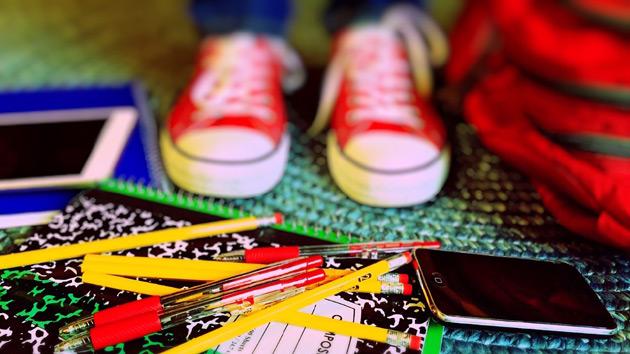Gwendolyn Albert: Is impunity ending for ethnic discrimination in the Czech schools?

The judgment earlier this month finding that a primary school discriminated against Romani enrollees into first grade on the basis of their ethnicity stands out as an example of children and their parents asserting their right to education in the Czech Republic. Should the school appeal, and should the first-instance judgment withstand higher court scrutiny, we might be able to say that a first blow has been dealt by the Czech courts to the impunity for ethnic discrimination in the schools that has persisted here for decades.
As of last September, guardians can now enroll all but the most profoundly disabled children into mainstream education in the Czech Republic, and schools have been given two years to transition into taking an inclusive approach to special education. Depending on how children’s guardians and school administrators choose to behave, this recent reform could reduce the selectivity of the Czech education system. Educating children in ethnically homogenous settings and discriminating against Romani children’s access to education together with non-Romani children remains the subject of the infringement proceedings launched by the European Commission some time ago.
The recent changes have not yet impacted ethnic discrimination in education one way or another. It is, however, clear that the Czech state is not yet taking advantage of all the legal means at its disposal to combat such discrimination. Clear law enforcement must be combined with improving the way educators manage the social atmosphere in the country’s schools.
It is no secret that many parents in the Czech Republic favor ethnically-segregated education. For this reason, Government officials avoid discussing the issue, and they also tend to give the child psychologists and educators responsible for assessing children’s development the benefit of the doubt, despite ample evidence that such assessments can be biased against Romani children, as the recent court case exemplifies.
The state has recently published some equality data (“qualified estimates”) about the distribution of Romani children in primary education, including special education. Its brief report did not specify how many primary schools have absolutely no Romani children enrolled in them at all, and it did not discuss the regional distribution of such schools. Instead, those segregated schools were lumped together with others into a very large category of schools with Romani populations of “5 % or less”. The report also did not describe information about ethnic segregation within schools at the level of classes, despite persistent reports of such segregation.
While panicked voices allege that desegregation and inclusive education might somehow lower the quality of Czech education, the fact is that according to the Organization for Economic Cooperation and Development (OECD), the Czech education system has been declining in international comparisons for more than a decade now. When we ask what the solution might be, we learn that it is simply a fact that the school systems that perform best in the world are those where education is inclusive. If educators and guardians genuinely want the best education for their children, therefore, they should learn all they can about inclusion and embrace it.
The role of principals in Czech education is crucial, but unfortunately the OECD reports that Czech education legislation “does not promote pedagogical leadership”. The emphasis is on administrative bureaucracy and not on “developing a collaborative school culture”. Oversight by school establishers (typically municipalities) focuses much more on budget discipline and much less on making sure there is no discrimination during enrollments, or that the quality of education is high, or that a school has a positive impact on its neighborhood.
School establishers should be required by the state to base their hiring decisions and their assessments of principal performance on indicators such as inclusiveness, professional support for teachers, school atmosphere, and transparency of enrollment procedures and hiring practices. All enrollments should be rigorously monitored to make sure they are free of discrimination. There should be guidelines on how to recruit quality principals, training for principals in how to deliver equal opportunities in education, and transparent criteria for principal selection. The OECD has warned that “considering the risk of political appointments, greater checks and balances should be in place” when it comes to hiring principals.
Similarly, the Justice Ministry should make retraining of existing judges and improved training for prospective judges a priority when it comes to interpreting Czech anti-discrimination law, the EU Race Equality Directive, and European Court of Human Rights jurisprudence. Until this recent judgment, it has been clear that the Czech courts’ reasoning has tended to demonstrate an unwillingness to abide by the Race Equality Directive in cases involving Romani plaintiffs.
Last but definitely not least, continuous training of all school staffs in how to prevent bullying should be a condition of employment in the schools. Such training should be included in the standards set for those graduating with degrees in pedagogy. Bullying and violence in the schools are key mechanisms through which people from various groups deter each other from coexisting in the schools and elsewhere. When the school atmosphere is inclusive and violence-free, that will reduce discrimination and unequal treatment.
Civil society monitors report that the relationships between the Education Ministry, the Regional Authorities, school establishers and school principals are mostly ones where suspicion, not trust, plays the main role. This is not healthy for any system. If the Czech education system is going to improve, then the adults responsible for it must be consistent, intellectually honest, and open with each other. Until that happens, the school system will continue to lack a common vision nationally and the status quo – bullying, declining academic achievements, discrimination and segregation – will continue.
The people whose lives have been and continue to be damaged by this are, unfortunately, the children themselves. No child in a 21st-century European democracy should have to threaten a lawsuit in order to be enrolled into first grade and access the education that is his or her birthright.